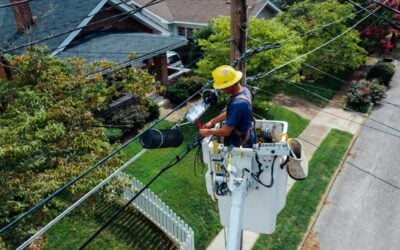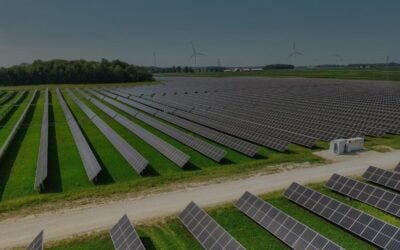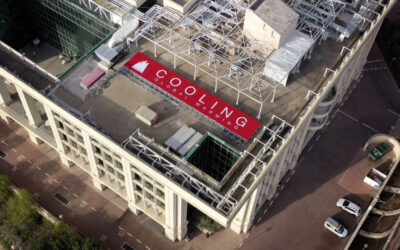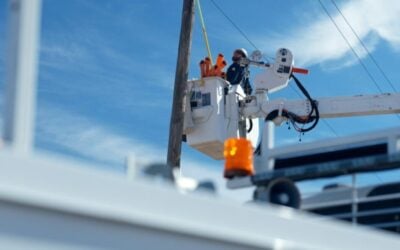Sunspec Alliance will demonstrate the capabilities of 50 smart homes. Image: SMA.
Germany’s ‘100% renewable village’ gets colourful grid-balancing battery
14 September 2015: Another trial project has been deployed in Germany to prove the ability of large-scale energy storage to adjust grid frequency, switching on what is thought to be Europe’s largest battery.
A ceremony was held earlier this month to mark the opening of the 10MW facility which is in Feldheim, a small village which made news around three years ago when it opted to become a “100% renewable energy” community. The village set up its own grid network and uses wind, solar and biogas to meet its electricity and thermal energy needs.
Against this backdrop, project partners Energiequelle and Enercon, both well-known in Europe’s wind power industry, implemented the battery system, which is officially known as Feldheim Regional Regulating Power Station (RRKW). It will provide grid stability by helping to adjust the frequency and keep it a 50Hz, which is necessary to ensure stable power supplies. RRKW can drain excess power from the grid or discharge into the grid to keep the load balanced.
Try Premium for just $1
- Full premium access for the first month at only $1
- Converts to an annual rate after 30 days unless cancelled
- Cancel anytime during the trial period
Premium Benefits
- Expert industry analysis and interviews
- Digital access to PV Tech Power journal
- Exclusive event discounts
Or get the full Premium subscription right away
Or continue reading this article for free
While it has been described as a trial, RRKW will participate in local markets for grid-regulating services, through Swedish company Vattenfall. Germany’s frequency response or frequency regulation market for grid-balancing has seen a couple of other high profile storage projects added to it recently, including Belectric’s Alt Daber solar farm and a 5MW/5MWh “battery park” in West Meklenberg developed by Younicos.
Lithium-ion battery modules were supplied for the RRKW 10MW system by LG Chem, while the system’s control technology was made by Enercon. The battery storage system, which sits in housing illustrated with colourful graffiti contributed by a professional artist along with local schoolchildren, required around EUR12.8 million (US$14.5 million) of investment.
Primus Power raises US$25m, could send batteries to Kazakhstan
9 September 2015: Primus Power has raised US$25 million in financing, including continued support from DBL Partners, the “win-win” social impact investment firm founded by early Tesla backers Nancy Pfund and Ira Ehrenpreis.
The grid-scale storage firm, headquartered in California, executed a Series D round, attracting investment from participants including the Russia-Kazakhstan Nanotechnology Fund (RKNF), which is owned by the round’s leader, clean tech venture capital fund I2BF Global Ventures.
Primus Power’s EnergyCell and EnergyPod storage solutions are claimed to be “safe, low-cost modular systems” for electrical energy storage. They use a zinc bromide battery chemistry and are meant to provide long duration of storage and flexibility towards a range of applications making them suitable for multi-hour, daily use, the company claims.
Joining in the funding round was DBL Partners, founded by Pfund and Ehrenpreis. DBL (Double Bottom Line) is already an investor in Primus Power from previous rounds and claims to be committed to making positive financial returns as well as positive social impacts. DBL has previously invested in Tesla and SolarCity, and was also involved in the recent acquisition of solar tracking manufacturer NEXtracker by Flextronics.
The deal follows the May 2015 signing of a strategic agreement between Kazakhstan’s main electricity provider, Samruk-Energy, for the supply of 25MW/100MWh of Primus Power systems, around 1,250 batteries. The Kazakh Republic has in place a goal of meeting 30% of energy demand with renewables by 2030 and of 50% by 2050.
Industry partners including ABB and SMA prepare DER-trial project
10 September 2015: Sunspec Alliance, “a trade alliance of developers, manufacturers, researchers and service providers” has received funding to evaluate how solar, smart inverters and energy storage can provide grid-balancing services allow for higher levels of distributed energy in California.
The alliance’s members include companies known for inverters and energy storage ABB, SMA, Ideal Power, SolarEdge, SolarCity, KACO, Outback Power, Enphase, safety consulting and certification company Underwriter’s Laboratory and software company OSISoft. Also involved are Olivine, consultancy Stratagen Consulting and the University of California, San Diego.
Sunspec Alliance member companies will contribute US$2 million towards the project’s required US$4 million funding, with the remaining half provided by the California Energy Commission (CEC) in the form of a grant.
The project will deploy a field study of interoperable solar, storage and inverter devices for balancing the grid and accommodating Distributed Energy Resources (DERs) and will later be used to trial different “economic models enabled by solar plus storage that will drive rapid growth in the DER sector”, Sunspec Alliance said.
Under the study, 50 smart energy homes will be demonstrated, open communications interfaces for the network will be developed and a business analysis of possible commercial models will be carried out. The project is aimed at helping California’s Public Utilities’ Commission (CPUC), the state regulator, to finalise the standards for Electric Rule 21, a tariff to establish interconnection, operation and metering requirements for generation facilities to be connected to the utilities’ distribution system.





